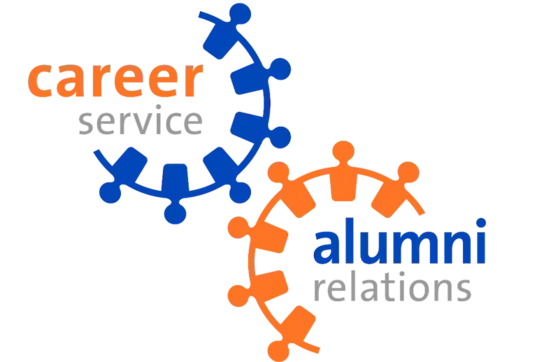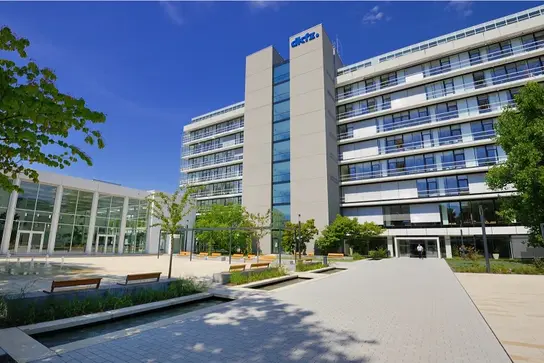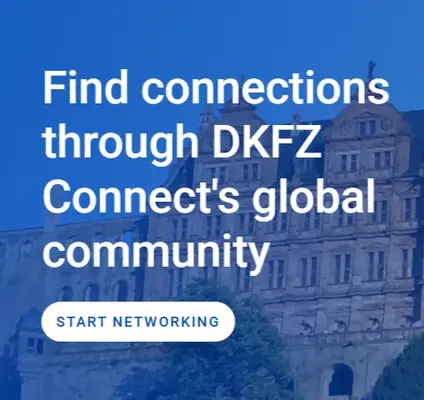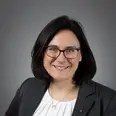Alumni Relations
DKFZ-Alumni-Initiativen dienen der Förderung dauerhafter Beziehungen zwischen heutigen und ehemaligen Mitgliedern des DKFZ und der Pflege des Gedankenaustausches in dieser weltweiten Gemeinschaft auf nationaler und internationaler Ebene.

Alumni-Aktivitäten

- DKFZ Connect Networking-Plattform: exklusive Social-Media-Plattform für aktuelle und ehemalige Mitarbeiter mit Mentoring, Jobs, Alumni-Digest und vielem mehr
- DKFZ-Magazine „Intern“ und „einblick“
- eine Alumni-E-Mail first.lastname(at)alumni.dkfz.de Weiterleitungsadresse
- Karriereberatungs-Tool "CareerCheck"
- Karriere-Veranstaltungen wie Career Days, Career Coffee, etc.
- wissenschaftliche Tagungen am DKFZ und im Ausland z.B. Science@DKFZ
- unterstützende soziale und kulturelle Aktivitäten für Gastwissenschaftler und Mitglieder des DKFZ
DKFZ Connect Plattform

DKFZ Connect ist die Online-Plattform für alle aktuellen und ehemaligen DKFZ-Mitarbeiter. Sie können per privater E-Mail beitreten oder sich in nur 2 Minuten mit Ihrem LinkedIn-Profil synchronisieren: www.dkfz-connect.de
DKFZ Connect bietet Jobs, Fotos, Updates, Veranstaltungen, Mentoring und vieles mehr
Für weitere Informationen senden Sie uns eine Email.
DKFZ Careers & Alumni Relations auf LinkedIn
Sie können auch unserer DKFZ Careers & Alumni Relations Seite auf LinkedIN beitreten.
Für den Einstieg empfehlen wir das Job Hunting Handbook (auch verfügbar auf Deutsch). Sie können Ihre Fähigkeiten mit LinkedIn learning verbessern und Tausende von Jobangeboten finden.
Wussten Sie, dass DKFZ-Studenten, Doktoranden und Postdoktoranden das DKFZ sowohl als Ausbildung als auch als Arbeitgeber angeben können? Wenn Sie das DKFZ unter Bildung angeben, können Sie die Alumni-Statistiken auf der DKFZ LinkedIn-Seite einsehen.
Finanzielle Unterstützung
Sie können gerne die Alumni-Aktivitäten finanziell unterstützen. Diese Spende ist innerhalb Deutschlands steuerlich absetzbar (Spendenbescheinigung wird bei Angabe Ihrer Adresse ausgestellt).
Sparkasse Heidelberg
IBAN: DE98 6725 0020 0005 0000 50
BIC (SWIFT): SOLADES1HDB
Sie können Ihre Spende auch direkt über das online Spendeformular übermitteln.
Bitte geben Sie in beiden Fällen als Verwendungszweck „M018 Alumni Relations“ an.
Kontaktieren Sie uns

Sally Böhm
Manager für Career Tracking und Alumni Relations